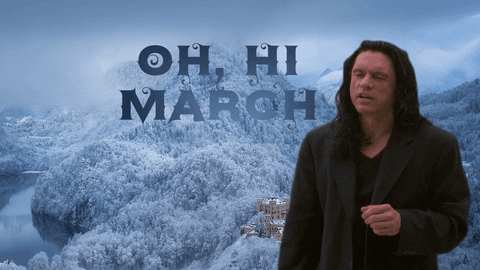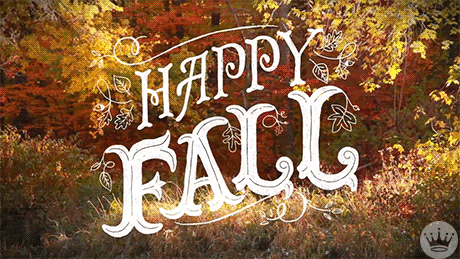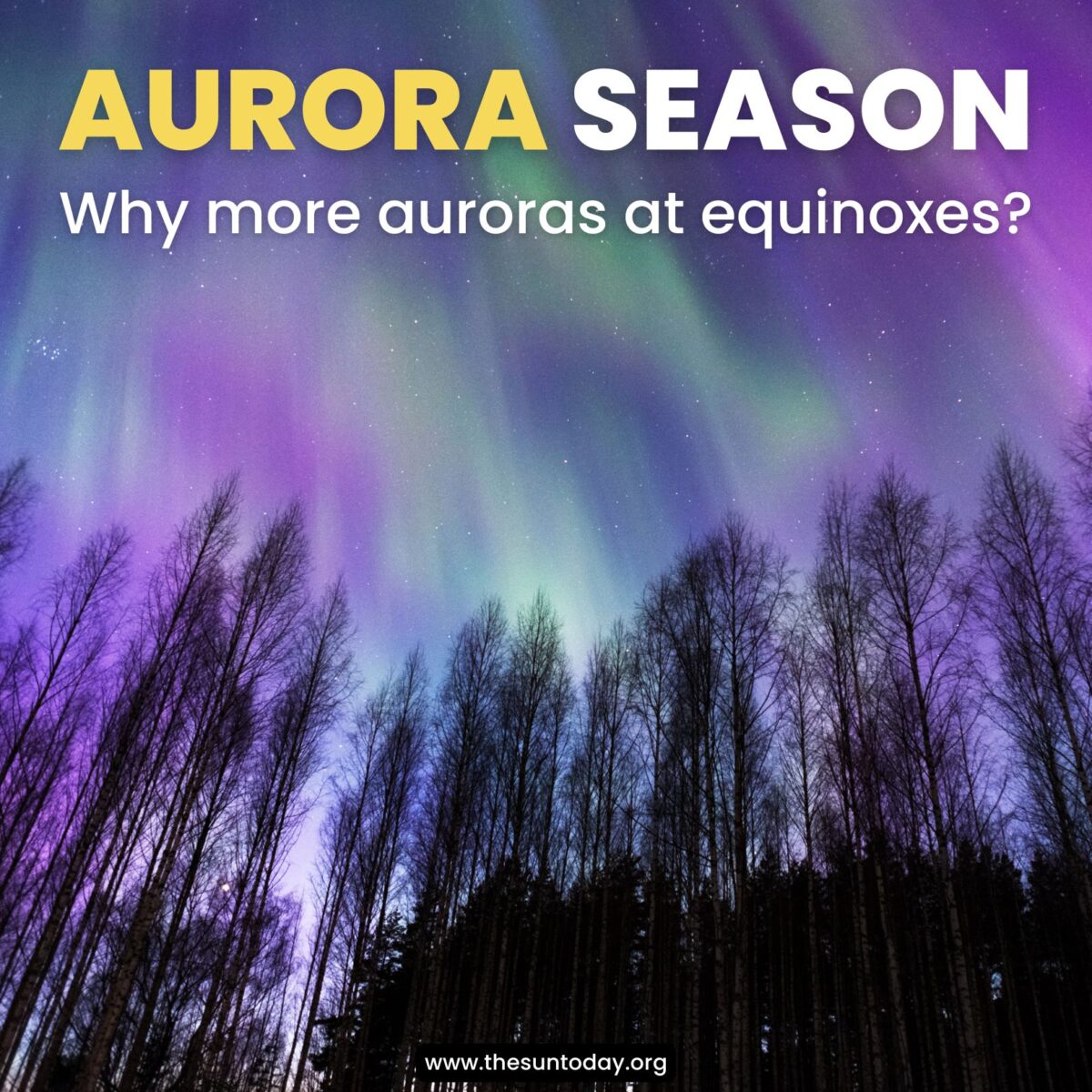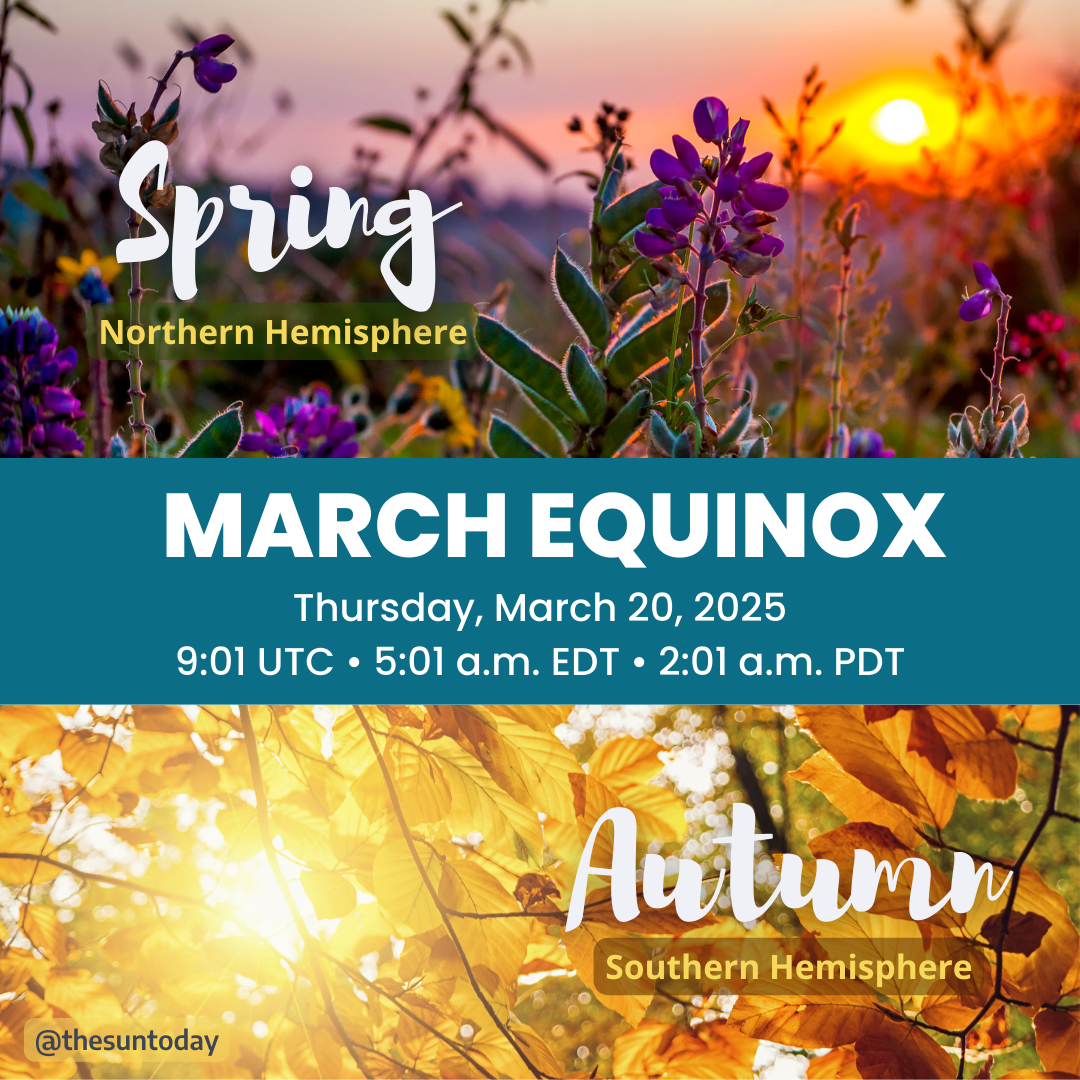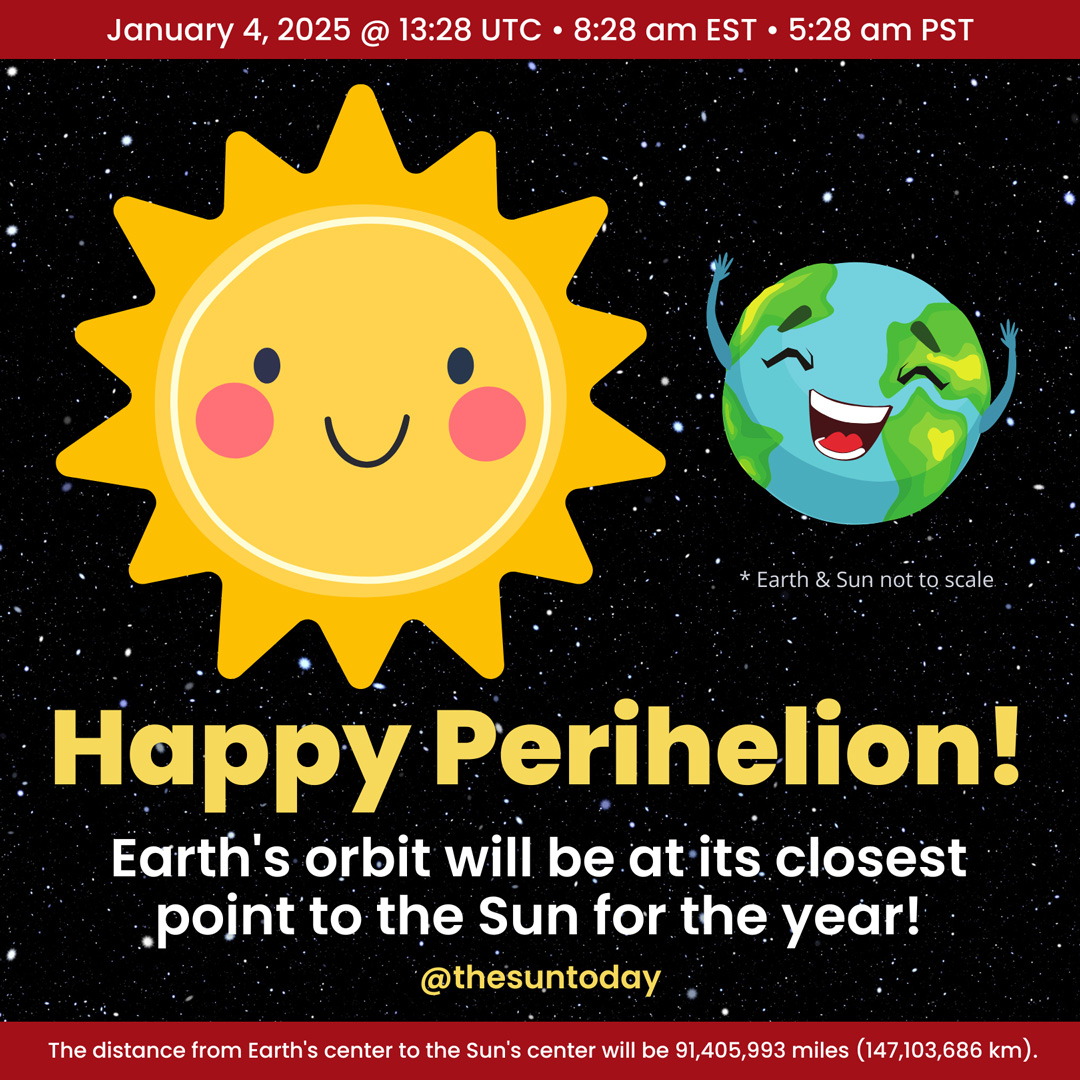
YAY! Another change of season is here.
The 2023 March Equinox happens on March 20, 2023 at 21:24 UTC
(5:24 p.m. EDT • 2:24 p.m. PDT)
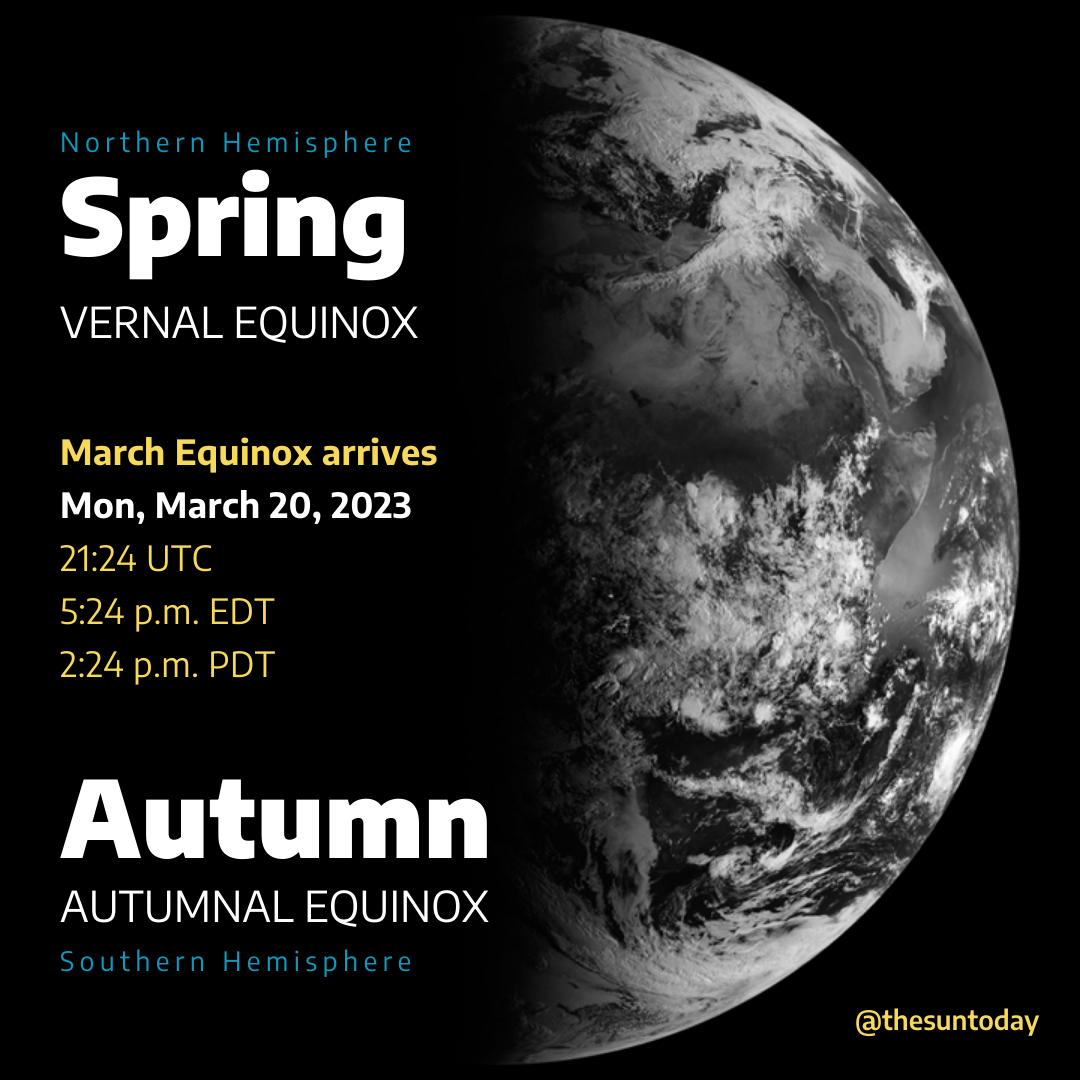
ALRIGHT! It’s a change of season! The next Equinox occurs on September 23, 2023 at 6:50 UTC (2:50 a.m. EDT • 1:50 p.m. PDT on September 22, 2023)
It’s the Vernal (Spring) equinox for the Northern Hemisphere!
It’s the Autumnal (Fall) equinox for the Southern Hemisphere!
But what is the equinox?
Before we go into the details, let’s hear from an astrophysicist. If you want to jump right in, go to about 1:40.
The astronomical event, known as an equinox, occurs twice each year, the March equinox (usually March 20) and the September equinox (usually September 22), when the plane of Earth’s equator passes through the center of the sun. On the June solstice, the sun reaches its highest point in the sky for an observer at the North Pole. On the December solstice, the sun reaches its highest point in the sky for an observer at the South Pole. Solstices also mark the change from fall to winter or spring to summer.
The word Equilux is used to mean a day on which the periods of daylight and night are equal.
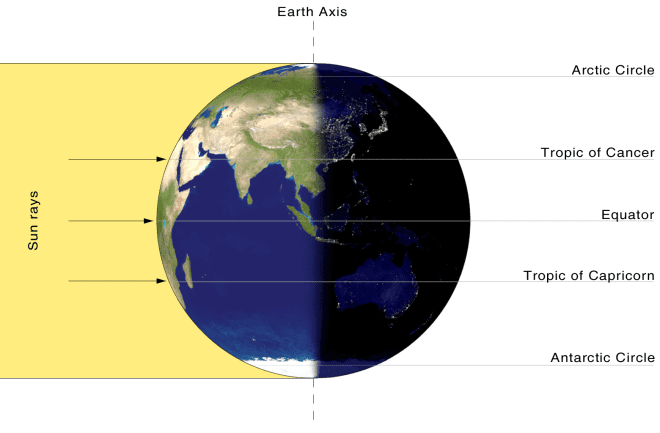
During an equinox, the Earth’s North and South poles are not tilted toward or away from the Sun, and the duration of daylight is theoretically the same at all points on Earth’s surface.
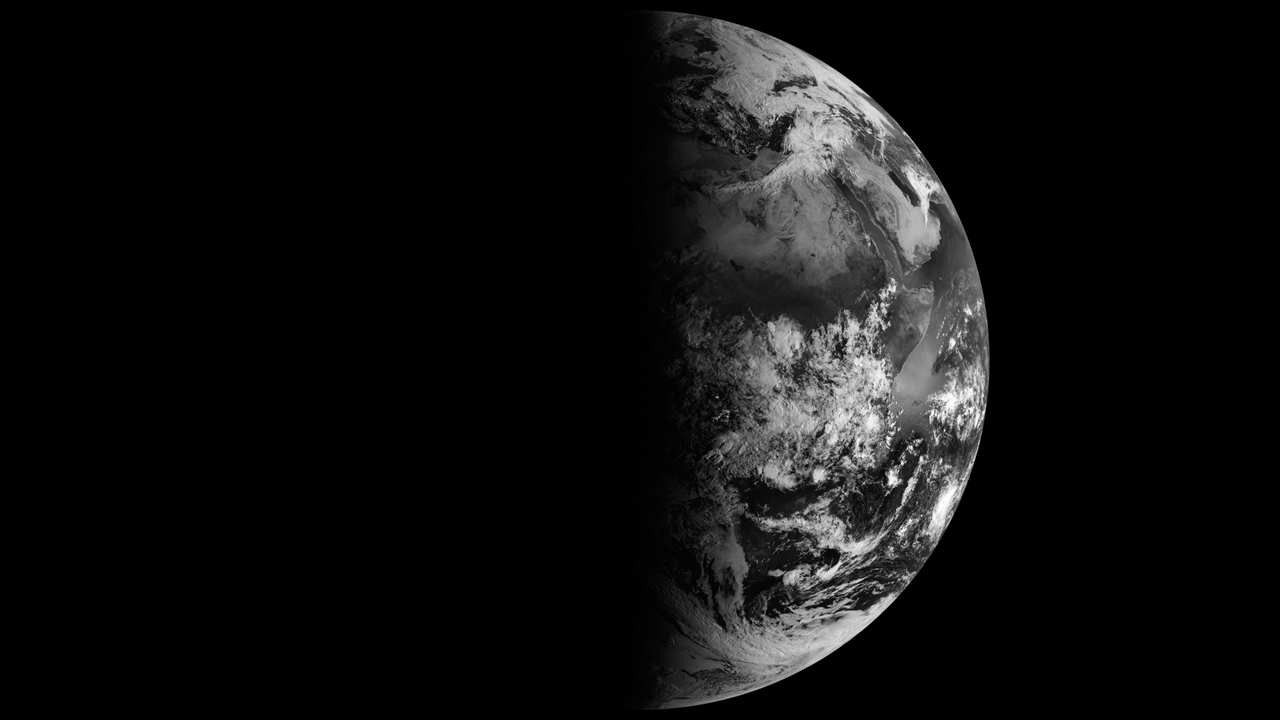
On the March equinox, the terminator is a north-south line once again. credit: NASA/SVS & NASA’s Earth Observatory
Not Entirely Equal Day & Night
On an equinox, the Sun shines directly on the equator and the length of day and night is nearly equal – but not quite. They are not exactly equal because the angular size of the sun and atmospheric refraction. The word equilux is used to mean a day in which the durations of light and darkness are equal to distinguish the day from an equinox.
The March equinox marks the moment the Sun crosses the celestial equator – the imaginary line in the sky above the Earth’s equator – from south to north and vice versa in September. The equinoxes are the only times when the solar terminator (the dividing line between night and day) is perpendicular to the equator. Then the northern and southern hemispheres are equally illuminated.
Equinoxes are the only times when the subsolar point is on the equator, i.e. the Sun is exactly overhead at a point on the equatorial line. The subsolar point crosses the equator moving northward at the March equinox and southward at the September equinox.
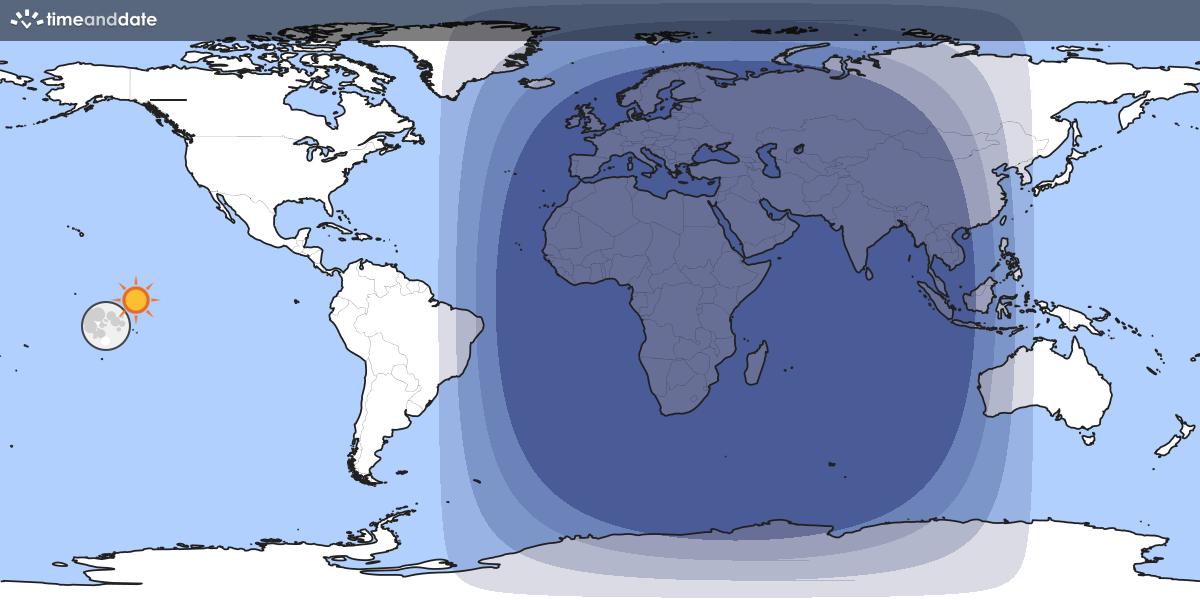
This map shows the position of the Sun and the Moon during the March 20, 2023 equinox (at 21:24 UTC.) It shows which parts of the Earth are in daylight and which are in night. credit: www.timeanddate.com
![]() = The Sun’s position directly overhead (zenith) in relation to an observer.
= The Sun’s position directly overhead (zenith) in relation to an observer.
![]() = The Moon’s position at its zenith in relation to an observer (Moon phase is not shown).
= The Moon’s position at its zenith in relation to an observer (Moon phase is not shown).
Civil Twilight (lightest shade)
Nautical Twilight
Astronomical Twilight
Night, no twilight (darkest shade)
The equinoxes and solstices are directly related to the seasons of the year. In the northern hemisphere, the vernal equinox (March) conventionally marks the beginning of spring while the autumnal equinox (September) marks the beginning of autumn. In the southern hemisphere, the vernal equinox occurs in September and the autumnal equinox in March.
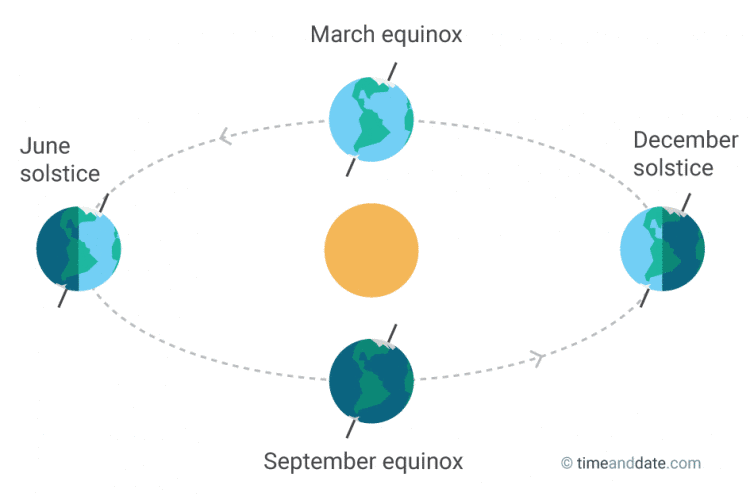
Equinox and Solstice credit: www.timeanddate.com
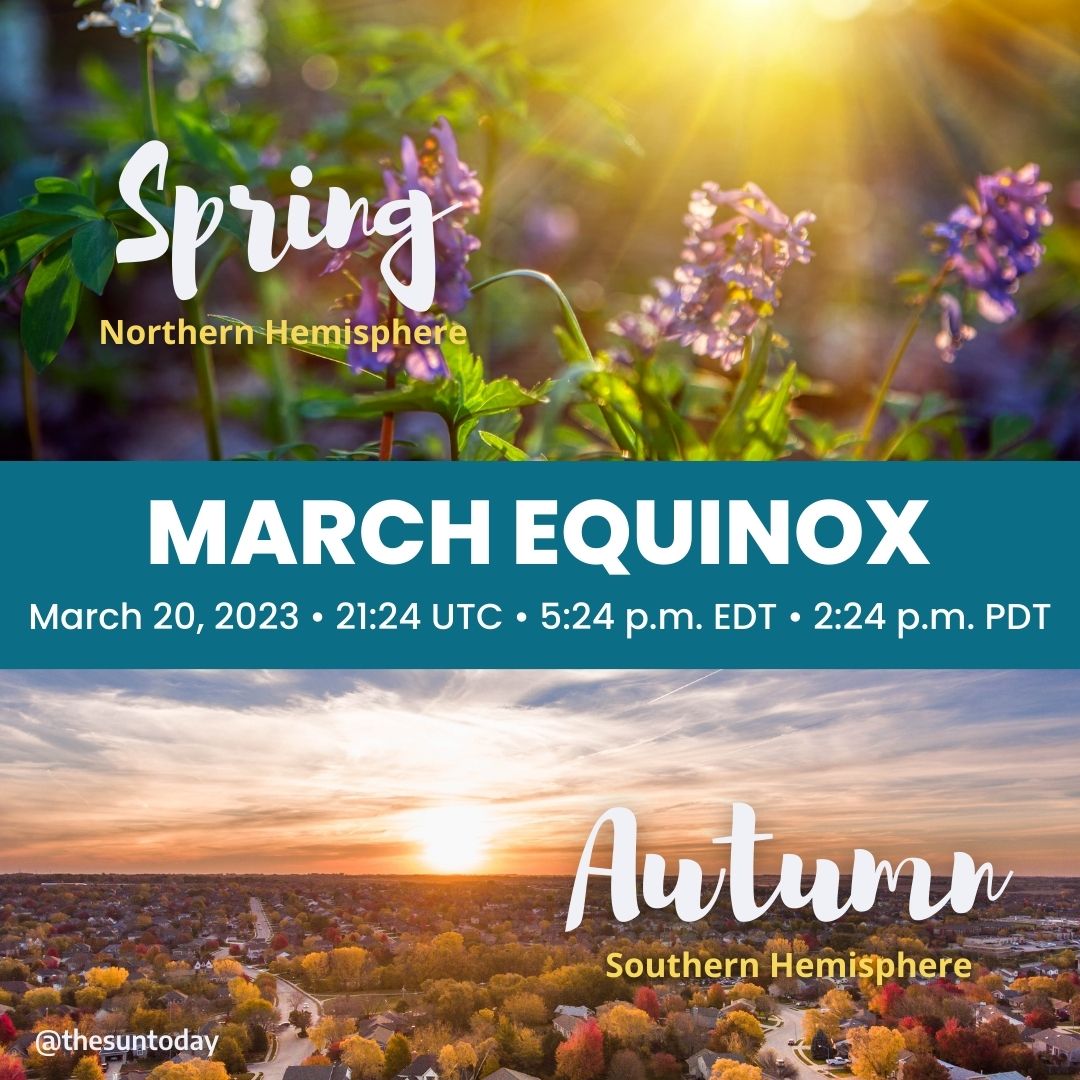
A visualization for the Northern Hemisphere.
A visualization for the Southern Hemisphere.
We can even see how the sun illuminates Earth during an equinox thanks to a NOAA satellite.
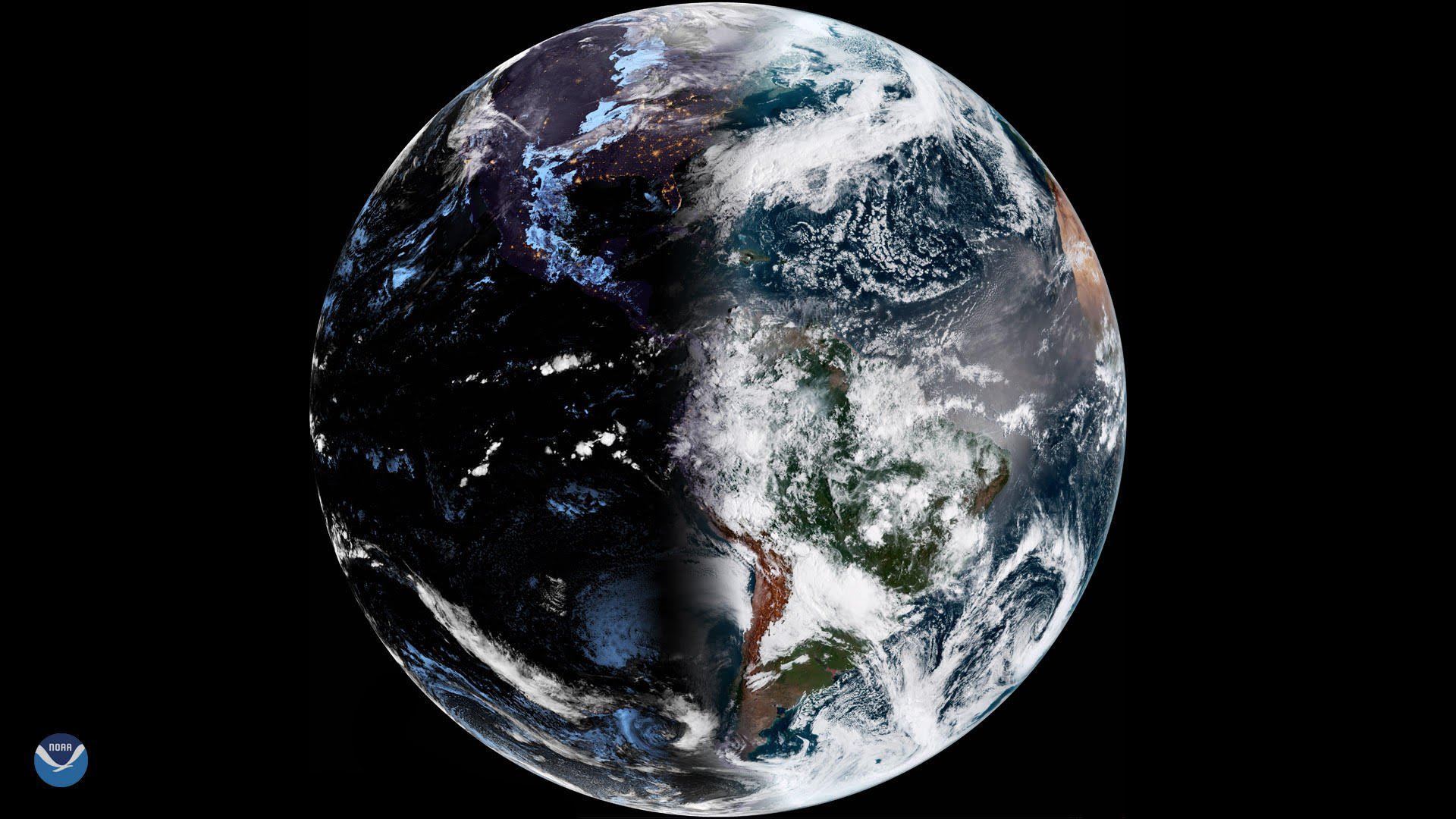
GOES East captured a view of the March 20, 2019 equinox. credit: NOAA NESDIS
credit: NASA/www.timeanddate.com/www.wikipedia.org
Change of Seasons
Earth’s tilted axis causes the seasons. Throughout the year, different parts of Earth receive the Sun’s most direct rays. So, when the North Pole tilts toward the Sun, it’s summer in the Northern Hemisphere. And when the South Pole tilts toward the Sun, it’s winter in the Northern Hemisphere.
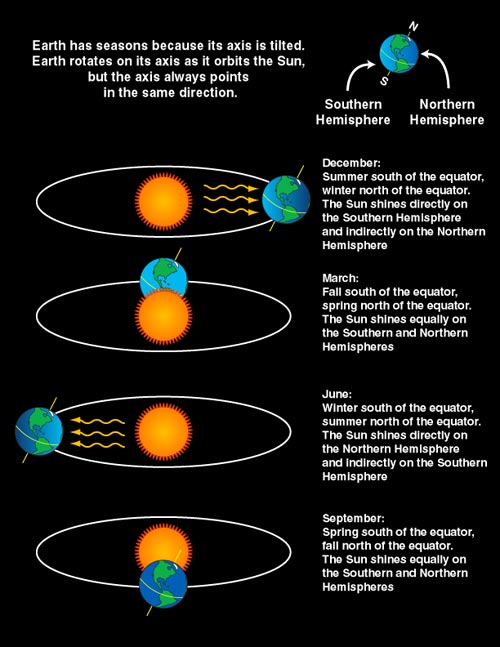
Credit: NOAA
Learn more about the change of seasons
It’s also time for Aurora Season!!
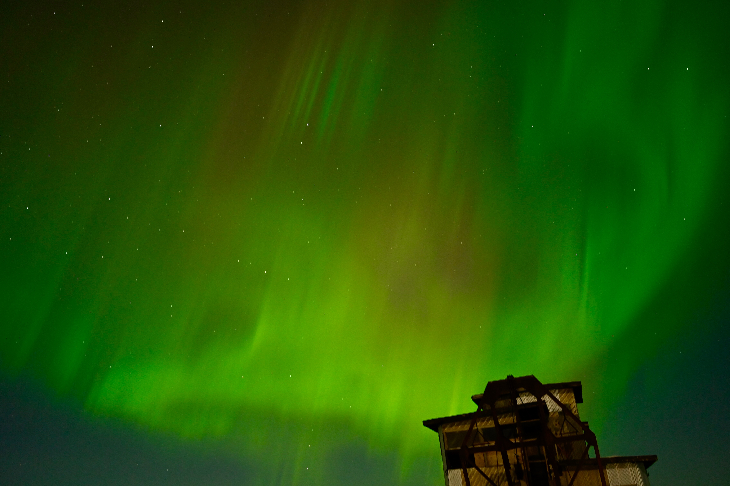
Aurora photo taken by taken by John Dean on March 13, 2022 in Nome, Alaska. Shared on spaceweather.com.
Are you ready for some aurora?!
Aurora season is winding down in the higher southern latitudes, but there is still time to witness it in person. It varies slightly by location. The Southern Lights season is just getting started. It is from March until October. This is because the aurora can more easily be seen due to longer nights.
Studies have shown that during both the fall and spring equinoxes geomagnetic disturbance and thus aurora are twice as likely as during summer and winter.

This figure by solar physicist David Hathaway of NASA Marshall Space Flight Center uses 75 years of data to show the relationship between the number of geomagnetic disturbances and the time of the year.
For a long time, scientists did not know what made equinoxes special. Using data from space missions such as THEMIS, scientists now know that it is all about geometry. THEMIS showed us that there are special magnetic ropes connecting Earth’s upper atmosphere directly to the sun. During the spring and fall equinox, the geometry of the Earth with respect to the sun is such that its magnetic field is best oriented to connect with the sun. Read more about it at EarthSky.
Solar activity is increasing in this current solar cycle, so hopefully, there will be more aurora.
We can all look for great photos and videos shared online, even if we can’t be there in person. It’s still a bucket list item for us to see this in real life!

By LEGO
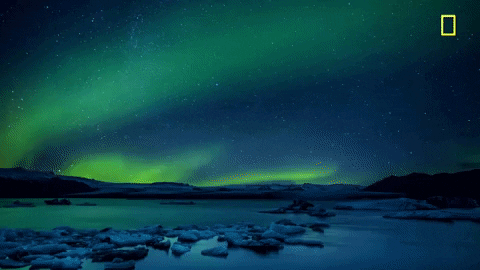
By National Geographic Channel
CREDIT: NASA/spaceweather.com/Wikipedia




